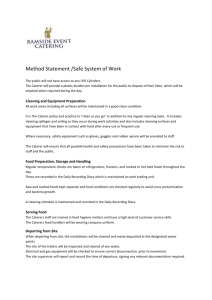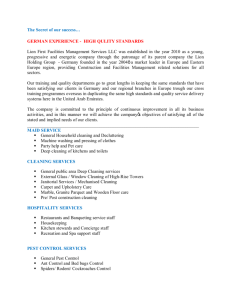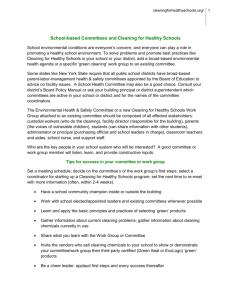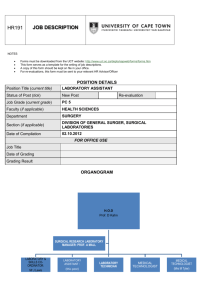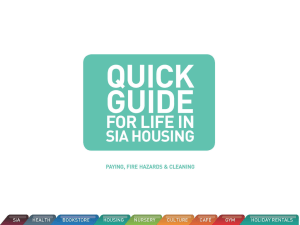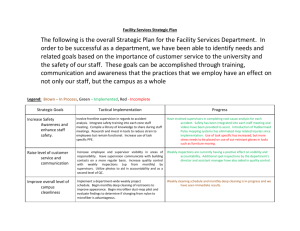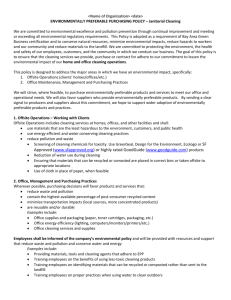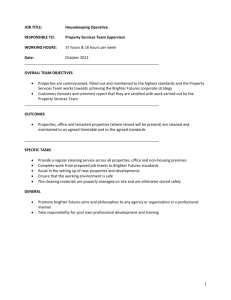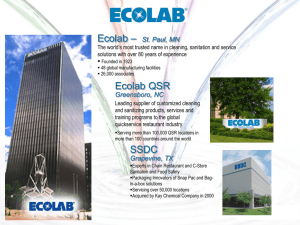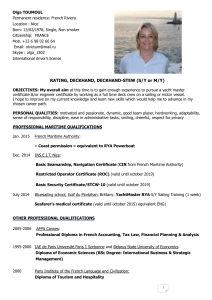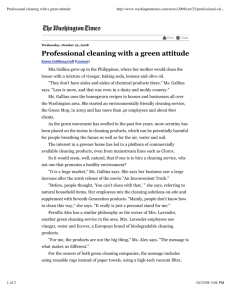Green Cleaning Teaching Outline
advertisement
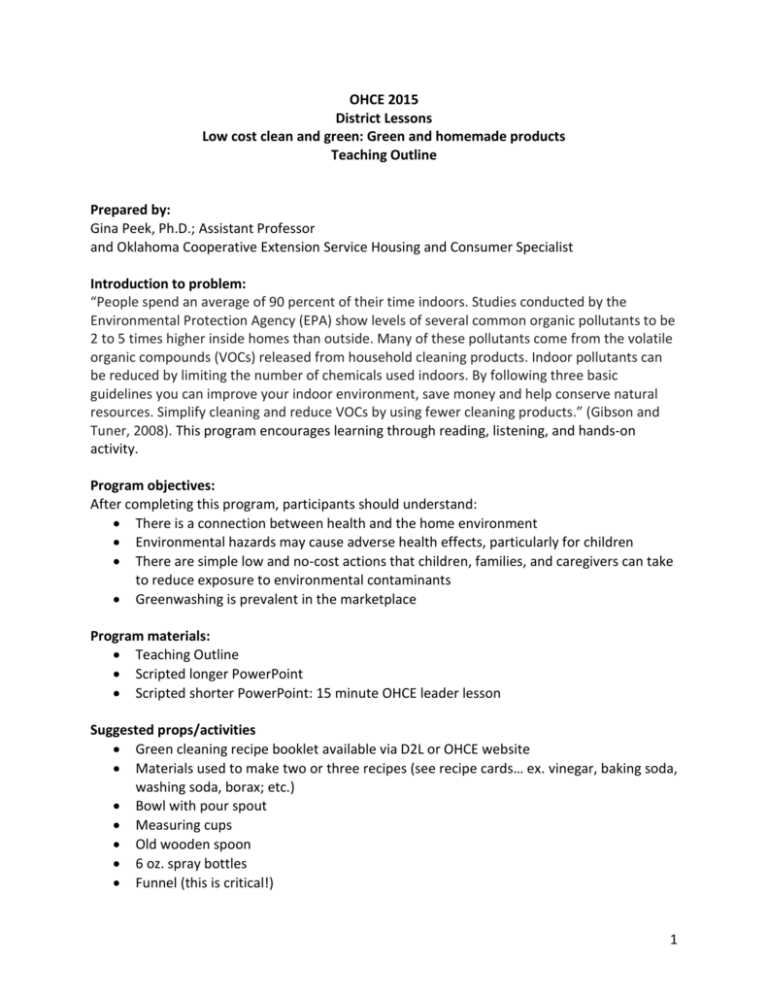
OHCE 2015 District Lessons Low cost clean and green: Green and homemade products Teaching Outline Prepared by: Gina Peek, Ph.D.; Assistant Professor and Oklahoma Cooperative Extension Service Housing and Consumer Specialist Introduction to problem: “People spend an average of 90 percent of their time indoors. Studies conducted by the Environmental Protection Agency (EPA) show levels of several common organic pollutants to be 2 to 5 times higher inside homes than outside. Many of these pollutants come from the volatile organic compounds (VOCs) released from household cleaning products. Indoor pollutants can be reduced by limiting the number of chemicals used indoors. By following three basic guidelines you can improve your indoor environment, save money and help conserve natural resources. Simplify cleaning and reduce VOCs by using fewer cleaning products.” (Gibson and Tuner, 2008). This program encourages learning through reading, listening, and hands-on activity. Program objectives: After completing this program, participants should understand: There is a connection between health and the home environment Environmental hazards may cause adverse health effects, particularly for children There are simple low and no-cost actions that children, families, and caregivers can take to reduce exposure to environmental contaminants Greenwashing is prevalent in the marketplace Program materials: Teaching Outline Scripted longer PowerPoint Scripted shorter PowerPoint: 15 minute OHCE leader lesson Suggested props/activities Green cleaning recipe booklet available via D2L or OHCE website Materials used to make two or three recipes (see recipe cards… ex. vinegar, baking soda, washing soda, borax; etc.) Bowl with pour spout Measuring cups Old wooden spoon 6 oz. spray bottles Funnel (this is critical!) 1 Other green cleaning props: Product with the EPA Design for the Environment logo (ex. Murphy’s Oil Soap) Product with the Green Seal logo (ex. Dial Basics hand soap) Product that claims to be “green” but may be just “green washing” (there are countless) Suggested activities: This program is meant to be hands-on. Please provide materials for participants to “make and take” some cleaning supplies. PowerPoint has a script. Encourage participants to share stories about their interest in “going green.” Everyone might have a different reason for wanting to go green! Preparation: Please prepare for your program by doing the following activities: Review the lesson well Gather props (photos with sample products are available) Lesson Evaluation: Post-program evaluation. Safety Issue Team Suggested timeframe: 15 minutes - 1 hour (depending on lesson) Note: This program was developed by University of Georgia Cooperative Extension: Gibson, S. M. S., & Turner, P. R. (2008). Cleaning healthy, cleaning green (HACE-E-73-2). Athens, GA: University of Georgia. 2

